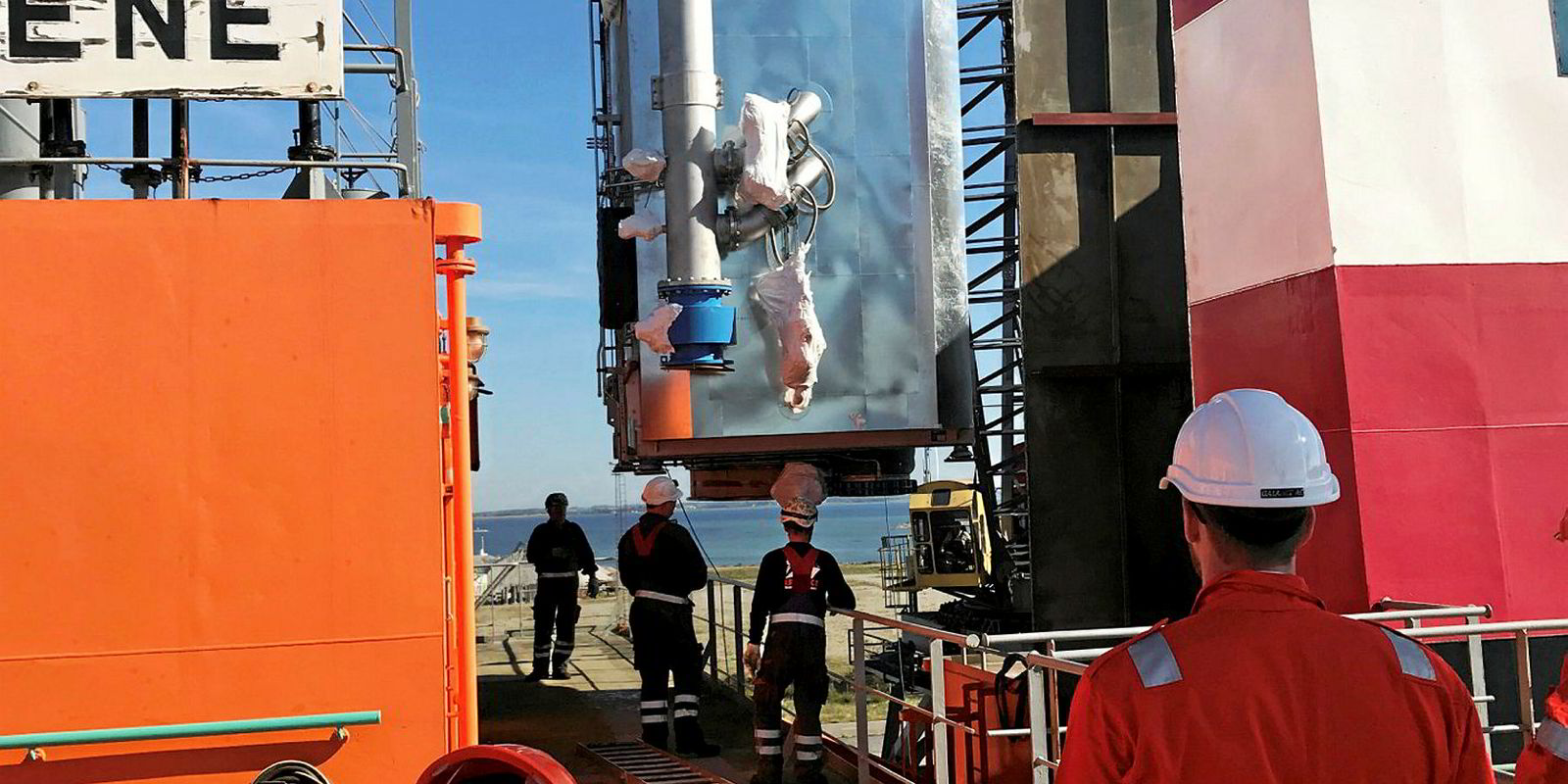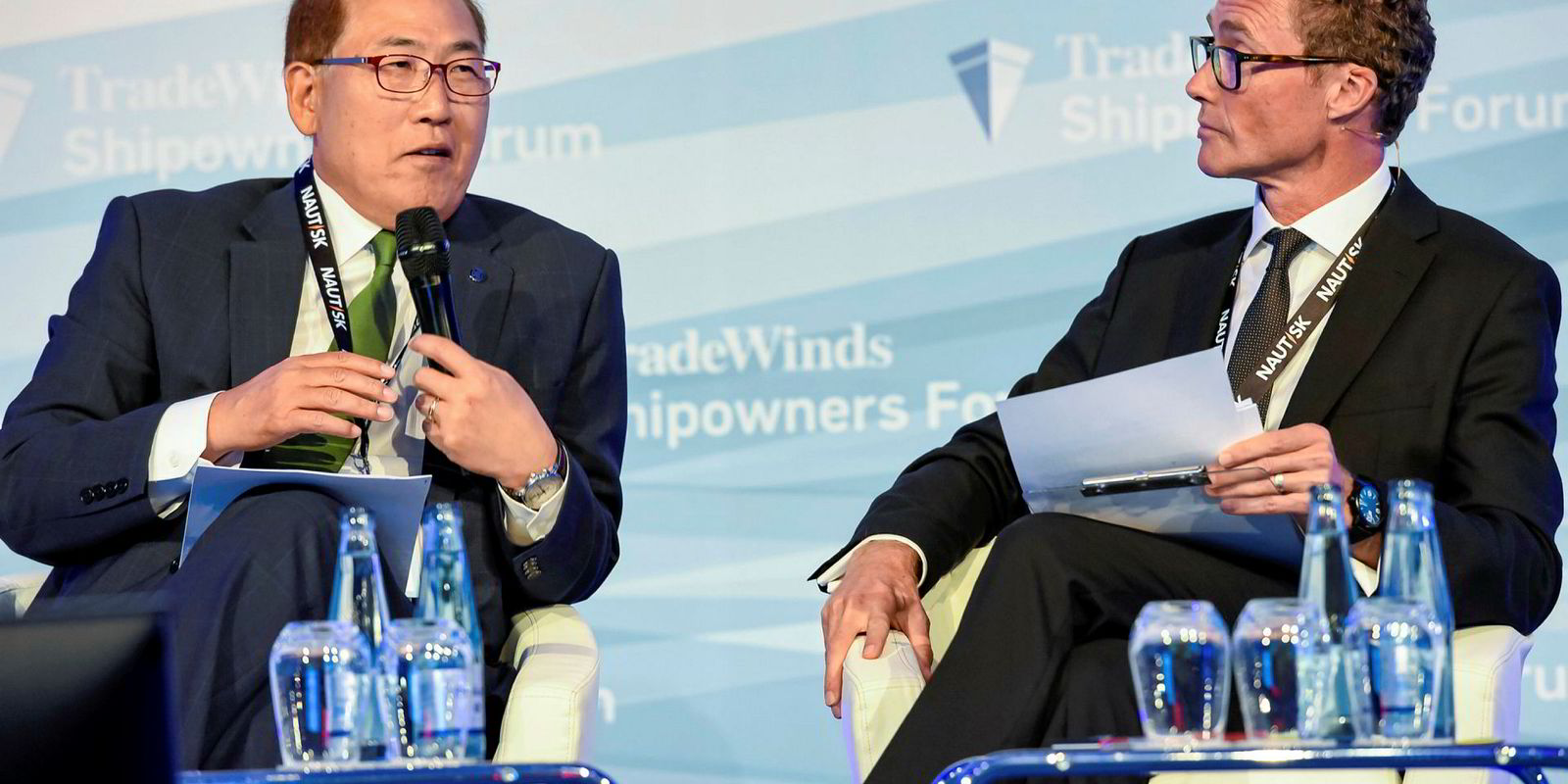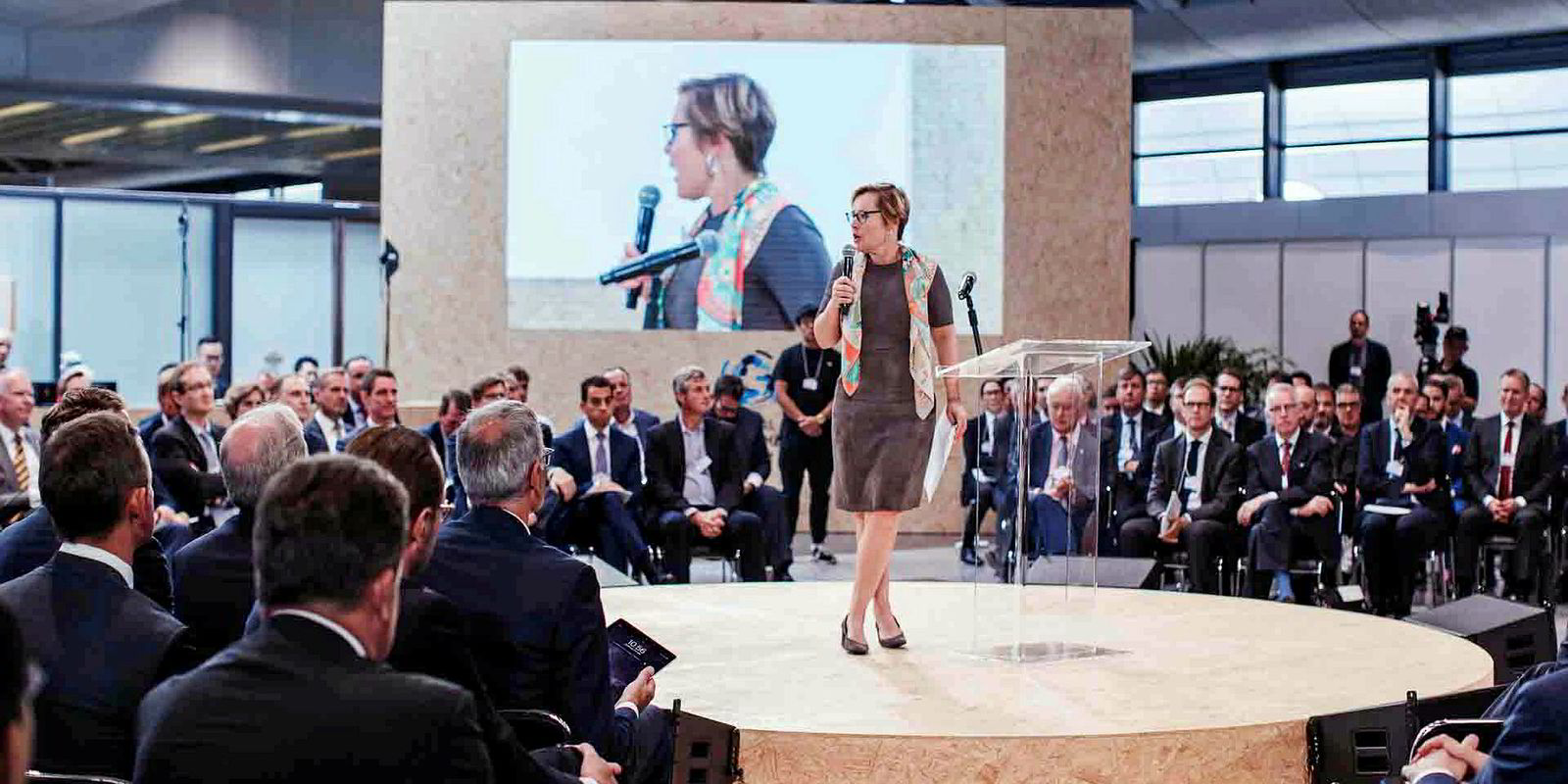Last year was a momentous one for the IMO. As the organisation celebrated is 70th anniversary, the member states, inter-governmental and non-governmental organisations, and the secretariat came together to forge significant achievements in maritime safety and the protection of the marine environment.
The IMO spirit of collaboration and cooperation was on full display, to great effect. The challenge for all of us this year and beyond is to keep up that momentum.
Last year's landmark achievement was undoubtedly the adoption of the initial strategy for reducing greenhouse gas emissions from international shipping, paving the way for future action.
I cannot stress strongly enough how significant this hard-won decision is for the future of the planet. We now have a definite policy commitment for a complete phase-out of greenhouse gas emissions from ships, a specific linkage to the Paris Agreement on climate change, and clear levels of ambition — including at least a 50% cut in emissions from the sector by 2050.
Detailed work on achieving these ambitions will continue this year. Member states are expected to build on their initial strategy by presenting firm proposals — including the enhancement of ships’ energy efficiency.
And, from the start of this year, ships over 5,000 gt will start collecting data on their fuel-oil consumption
Kitack Lim
The fourth IMO greenhouse gas study will be initiated in 2019. And, from the start of this year, ships over 5,000 gt will start collecting data on their fuel-oil consumption, a key element of the three-step approach to tackling greenhouse gas emissions. This data will allow member states to make sound, fact-based decisions with reasoned, technical analysis.
IMO 2020
This year will also be a crucial one for implementing the reduced upper limit of the sulphur content in ships’ fuel oil — known universally as IMO 2020.
First taken in 2008, and confirmed in 2016, this monumental decision for the environment and human health demonstrates the IMO’s continuing commitment to the well-being of the planet and its inhabitants.
Gearing up for implementation in 2020 will be a prominent theme this year.
IMO 2020 is a perfect example of why it is so important for shipping to take proper and timely consideration of IMO matters when framing its investment strategies.

Shipowners have options with regard to how they meet the IMO 2020 requirement, and choices must be made. Entry into force is fast approaching; the time to implement is here.
Just as important, after September 2019, is that all ships must meet the D2 standard for ballast water discharges. For most vessels, this will mean installing a ballast water management system. January 2020 also marks the entry into force of a raft of amendments to the International Convention for the Safety of Life at Sea (Solas), adopted by the IMO’s Maritime Safety Committee in 2016, 2017 and 2018.
We now have a definite policy commitment for a complete phase-out of greenhouse gas emissions from ships, a specific linkage to the Paris Agreement, and clear levels of ambition
Kitack Lim
From April, under the revised Convention on Facilitation of International Maritime Traffic, ships and ports must exchange data electronically — preferably using the “single window” concept. This will help improve trade flows and is another step towards unleashing the full potential of the sustainable “blue economy”.
Preparation and forward planning by the shipping industry are crucial to ensure effective implementation of all these coming requirements. And the signs are most encouraging.
Since the ratification requirement for the ballast water convention was met in 2016, an additional 33 countries with 45% of the world’s tonnage have ratified the convention, demonstrating the global commitment to stopping the spread of invasive species.
The guidelines for implementing IMO 2020 will be helpful in enabling the industry to make sound choices. Further development of goal-based standards for ships demonstrates the industry’s commitment to safety.
The IMO’s continuing capacity-building and technical cooperation efforts across the range of regulatory regimes help create the level playing field that the industry needs to operate efficiently.
While the recent focus of many followers of the IMO has rightly been on environmental issues, we should never allow our focus on safety to be anything other than pin-sharp. Not only is safety of navigation a mission-critical objective in its own right, it is also a major contributory factor to successful environmental performance.
Artificial intelligence, data-supported remote management and autonomous operation are becoming realities
Kitack Lim
Moreover, the digital revolution is changing the face of shipping. Artificial intelligence, data-supported remote management and autonomous operation are becoming realities.
This year, the IMO’s maritime safety and legal committees will continue their regulatory scoping exercises to meet the challenge of greater automation of ships, operating safely.
Seafarers’ welfare paramount
Enhanced automation may well be the way of the future, but the emphasis on seafarers’ welfare must continue. The cornerstone of the shipping industry — its people — will remain a central focus of the IMO in 2019 and beyond.
Consistent with this focus, the World Maritime Day theme for 2019 — Empowering Women in the Maritime Community — will raise awareness of the importance of gender equality, in line with the United Nations' sustainable development goals, and highlight the continuing contribution of women in the maritime sector.
This year will also see the IMO council looking further into the future, as it continues its work of review and reform of the organisation. The council’s open-ended working group on this topic made significant progress in November. The coming year will see ideas gel and decisions made to ensure the IMO remains efficient, effective, inclusive and transparent.
I look forward to working with all IMO stakeholders, and the wider maritime community, to meet the exciting challenges ahead as we continue our voyage together.





